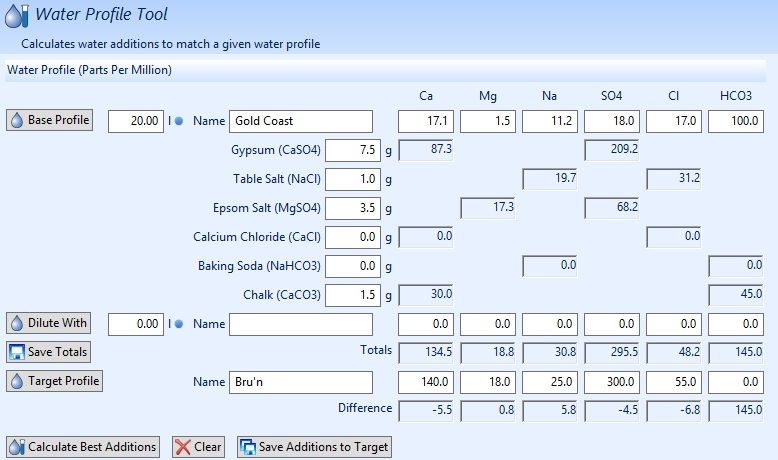Also your sulphate to chloride ratio is about 6. The top of the range for a bitter/hoppy beer is 2.3 and malty beers about .5. For a balnced beer 1.3 is the ideal ratio.
You probably dont need your calcium that high, reduce the gypsum to about 2-3g which will still get your calcium over 50ppm but will get your sulphate down. If you added around 3g of gypsum, your sulphate/chloride ratio would be around 1.5-1.8, which would be good for a bitter/hoppy pale ale.
Even adding 3g of gypsum still has your sulphate over 100, so maybe add 2g of gypsum and .5g of calcium chloride to bring calcium up and keep sulphate in check.
The problem with chalk is it increased your carbonates which keeps your mash ph higher
Have a read of this
https://lifefermented.wordpress.com/2013/05/26/water-treatment-for-brewing-1-the-basics/
Also found this
Sulfate (SO4)
Sulfate plays a major role in bringing out hop bitterness and adds a dry, sharp, hoppy profile to well hopped beers. It also plays a secondary role to lowering Ph of the mash, but the effect is much less than with carbonates as sulfate is only weakly alkaline. High levels of sulfate will create an astringent profile that is not desirable. Normal levels are 10-50 mg/l for pilsners and light beers and 30-70mg for most ales. Levels from 100-130 mg/l are used in Vienna and Dortmunder styles to enhance bitterness, and Burton on Trent pale ales use concentrations as high as 500 mg/l.
re:
http://beersmith.com/blog/2008/08/24/brewing-water-hard-or-soft/

